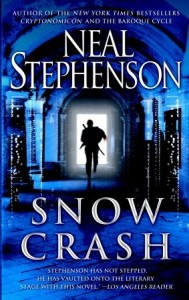 Title: The Last Whisper in the Dark (Goodreads)
Title: The Last Whisper in the Dark (Goodreads)
Author: Tom Piccirilli
Series: Terrier Rand #2
Published: Bantam Press, 2013
Pages: 336
Genres: Thriller
My Copy: ARC from Netgalley
Buy: Amazon, Book Depository (or visit your local Indie bookstore)
Prodigal thief Terrier Rand has been sucked back into the life he so desperately wanted to escape. He finds himself this time helping his old friend’s wife, Kimmy discover just what has changed with Chud since the night a car heist went horribly wrong. These people don’t take kindly to the questions Terry is asking but before he can find that truth, a curvy femme fatale takes him on a walk on the wild side, estranged relatives pull him into their horror film empire, and his sister is heading for disaster.
I first discovered Tom Piccirilli from an Amazon email recommending me The Last Kind Words (book one of the Terrier Rand series) based on my enjoyment of Drive by James Sallis. Based on that email I did some research of the book and ending up buying it (not from Amazon). Although the two books are vastly different I really enjoyed The Last Kind Words and was so pleased to see Terrier Rand return for another novel.
Terrier Rand grew up in a household of thieves and grifters; from a very young age Terry had been engaging in theft. He left his family and life of crime to go straight but in The Last Kind Words, which happened five years later, he had been dragged back in when his brother was claiming to be innocent of one of the victims of his killing spree. His brother was only days away from execution and asked Terry to look into that one murder. Collie has pleaded guilty for all the other murders but the police won’t listen when he claims he is innocent of this one murder. Collie doesn’t want the real killer to remain on the loose and even though Terry hates his brother and what he did, he finds himself investigating.
Now Terrier finds himself sucked into the family drama all over again, this time it’s his old friend Chud (as well as his wife Kimmy) and his sister Dale that he has to look after. No matter what he does, Terry just can’t seem to escape his family; though he may love them, they will always suck him back into a life he urgently wants to escape. So Terry is constantly in a battle between escaping and helping the people he loves; Dale his younger sister who he wants to keep away from the world of crime and Kimmy, his former fiancée and his daughter, who he wants to keep safe as well and if his old friend Chud is mixed up in something he might have to try and save him as well.
This is not a crime thriller; this is a book of family drama and different dilemmas that come with them. While the thriller genre plays out really well and you can even see Tom Piccirilli’s noir back ground come through within this book. I love this series simply because of the unique characters and the drama that comes with looking after those who are close to you. Piccirilli does a wonderful job of writing crime fiction and blending it with character development and drama, something that is often lacking in this genre and he just shows the world how it can be done well and he does it with ease and style.
The Last Whisper in the Dark continues the story of Terrier Rand really well, those characters have a way of sticking with you and it was so great to return to them and see what happens next. You have to read The Last Kind Words before trying this book out but I highly recommend them both if you are looking for something with more character and emotions in a crime thriller. I will admit I haven’t read anything else Tom Piccirilli has written which I feel bad about but maybe I will get a chance to do so sometime soon. I hear great things about his noir fiction and in particular The Cold Spot, so that is already on my radar.

 Title: The Dud Avocado (
Title: The Dud Avocado ( Title: Snow Crash (
Title: Snow Crash ( Title: Gentlemen & Players (
Title: Gentlemen & Players ( Title: The Strange Case of Dr. Jekyll and Mr. Hyde (
Title: The Strange Case of Dr. Jekyll and Mr. Hyde ( Title: The Hunter (
Title: The Hunter ( Title: Invitation to a Beheading (
Title: Invitation to a Beheading ( Title: The Last Good Kiss (
Title: The Last Good Kiss ( Title: Decline and Fall (
Title: Decline and Fall ( Title: Main Street (
Title: Main Street (